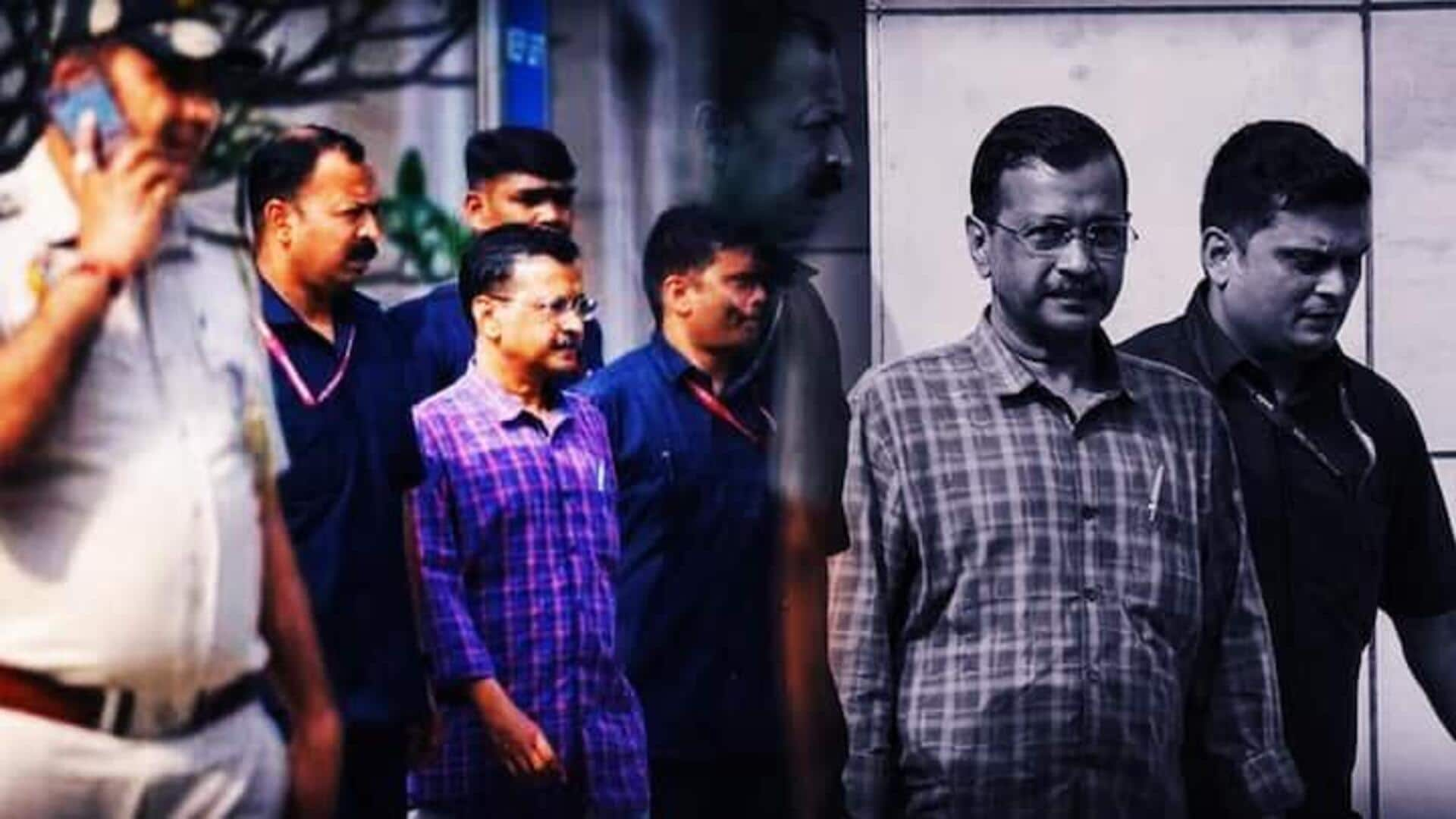
Kejriwal sent to judicial custody for 14 days
What's the story
Delhi Chief Minister Arvind Kejriwal has been remanded to judicial custody until July 12 by a Delhi court.
The decision follows the conclusion of his three-day custody with the Central Bureau of Investigation (CBI) over a corruption case linked to the now-defunct Delhi Excise Policy of 2021-22.
Vacation Judge Sunena Sharma of Rouse Avenue Courts passed the order when the CBI did not request an extension of its custody.
CBI's stance
CBI's argument for Kejriwal's extended custody
The CBI initially urged the court to extend Kejriwal's judicial custody to 14 days, citing his influential political status and potential to tamper with evidence and influence witnesses.
The agency also noted that despite Kejriwal being evasive and untruthful in answering their questions, further custodial interrogation was not required at present.
Kejriwal was arrested by the CBI on June 26 while already in judicial custody for a money laundering case registered by the Enforcement Directorate (ED).
Arrest details
Kejriwal's arrest and legal representation
Both cases are linked to an alleged scam involving the Delhi Excise Policy.
The same court had granted him bail in the ED case on June 20.
However, the Delhi High Court issued an interim stay on the grant of bail the next day after the ED filed an urgent application.
The high court confirmed the stay of the trial court's bail ruling on June 25.
Legal proceedings
Kejriwal's defense and court's response
Senior Advocate Vikram Chaudhari, representing Kejriwal, requested the court to examine if there was any material to remand Kejriwal.
He asked the CBI to disclose what evidence they had against Kejriwal that justified his arrest on June 26.
However, Judge Sharma suggested it would be more appropriate for Kejriwal to file a bail application and stated that the evidence collected by the CBI cannot be disclosed to the accused.
Corruption charges
Allegations against Kejriwal and AAP
Kejriwal was first arrested by the ED on March 21, 2024, in a money laundering case linked to the alleged Delhi excise policy scam.
He is accused of being a key conspirator in a plot to intentionally leave loopholes in the liquor policy to benefit certain liquor sellers.
The ED alleges that kickbacks received for these loopholes were used by Kejriwal's party, Aam Aadmi Party (AAP), to fund its elections in Goa.